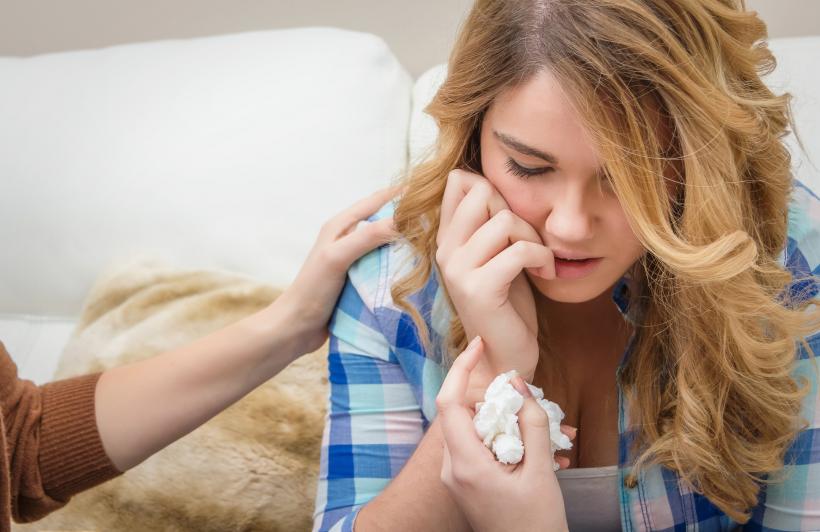
What can you do for your kids after tragedy? We have some helpful tips!
There is no opening sentence for an article like this. I think it’s fair to say that we are tired; we are all tired. We are collectively exhausted by constant tragedy. Puerto Rico. Texas. Florida. Sandy Hook. Orlando. 9/11. Countless others. Natural disasters, but even more frightening, repeated attacks on folks in our own country and abroad, often resulting in great loss of life, all at the hands of another human or humans. Today, a mass-shooting in Las Vegas.
Stephen Paddock, a 64-year-old Nevada man, opened fire on 22,000 concert-goers, killing at least 58 and wounding 400 more. Let’s be clear: this man was a heavily-armed American citizen, a domestic terrorist.
And we are left devastated, frightened, fearful for the future, desperate for answers.
And what about our kids? They are feeling all of those things, all without any foundation of life experience or understanding of history to cushion the blow.
I've put together two short lists here of things you can say (and do) for your kids after tragedy. I hope you find them useful.
First, what do we tell them?
1. There are bad people in the world.
But not all people are bad. This person was a bad person. There are not a lot of people who would do something like this, but there are some. We don’t always understand why people do the things that they do.
We don't always understand everything.
2. It’s scary.
Because it is scary. It is very scary. I am scared. You are scared. We are all scared.
Don’t tell them not to be scared, because they aren’t going to hear you. Your voice is drowned out by the very real fear of death.
Let them be scared. Tell them it's ok.
3. You are safe.
It’s ok to be scared. But you are safe here. This person (or persons) will not be able to harm you or the people you love.
You are safe and I will keep you safe.
Are kids really safe? Do we ever know? No. But telling them that someone might open fire on their school, while apparently possible, is not a thing they need to hear.
3. Part 2 Your family is safe.
Your mom/dad/sister/brother etc. are all safe.
There are few things more frightening to a child than the thought of losing people they love, especially the people who care for them.
4. It’s ok to cry.
And it’s ok for you to cry with them.
It’s ok to say, “I am really sad about the people that died.” And it’s ok for them to be sad, too.
This is not a time for the suppression of emotion. This is not the time that our kids should be told they can’t have the feelings they are having.
You might also like: 6 Terrible Things Happening In The World Right Now (And What To Do About Them)
Second, what can we do?
5. Maintain your typical routine.
There is nothing that kids need more (aside from your love) than routine. The power of routine cannot be underestimated. There is safety in expectation. If you always eat spaghetti on Monday (we call it “Spaghetti Madness Monday” at our house), then EAT SPAGHETTI ON MONDAY. Always.
Go to bed. Wake up. Do all of the usual things at the usual times.
Maintaining normalcy (or creating it) helps kids makes sense of senseless events.
6. Give them some extra attention.
This is a great time to spend a little more time with your kids. Go have an ice cream cone. Go to the park for no reason. Play Uno (Attack is our favorite). Read more books. Sing more songs.
This works for adults, too. What better time to hold onto each other than a time of loss and fear?
Also, watch for signs of stress and anxiety. If they are not sleeping or eating, or are acting particularly sullen, talk to them and then seek help from your pediatrician.
7. Stay calm and model assurance.
As they always do, they will continue to look to you for cues about how they should be acting.
This doesn’t just apply to small children, your teenagers are watching you, too. They are not learning how to be adults by listening to you, the most powerful way to teach your children is to show them. Show them kindness, patience, serenity.
We will never be able to prevent these things from happening. If history is any indication, it seems like they will only happen more often. Arm yourself with the tools and information to help your kids process this kind of trauma, you need it as much as they do.
Related:
-
Waking Up To The Mass Shooting In Las Vegas: I Just Want To Hug You
-
In The Wake Of Orlando: How Do I Help My Child Cope With Tragedy?
-
The Anxious Activist’s Survival Guide







![Photo By Dr. François S. Clemmons [CC BY-SA 4.0 (https://creativecommons.org/licenses/by-sa/4.0)], from Wikimedia Commons](/sites/default/files/styles/profile/public/images/article/2019-06/Mr.%2520Rogers%2520%25281%2529.png?itok=LLdrwTAP)